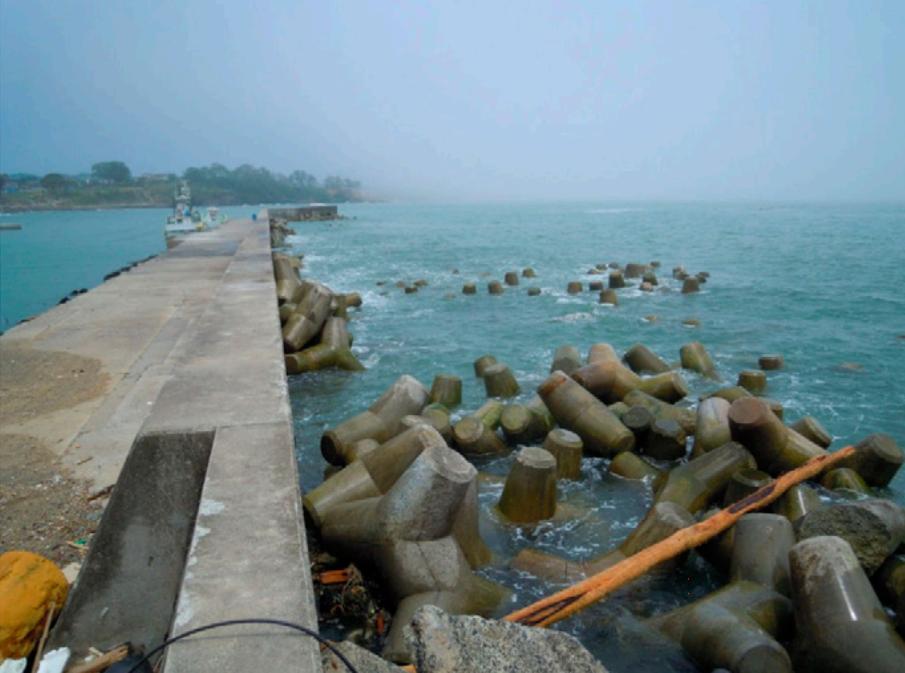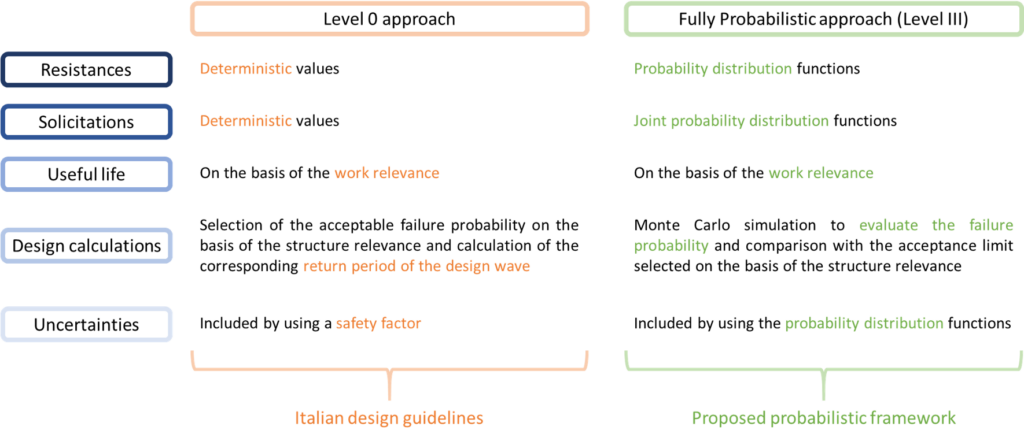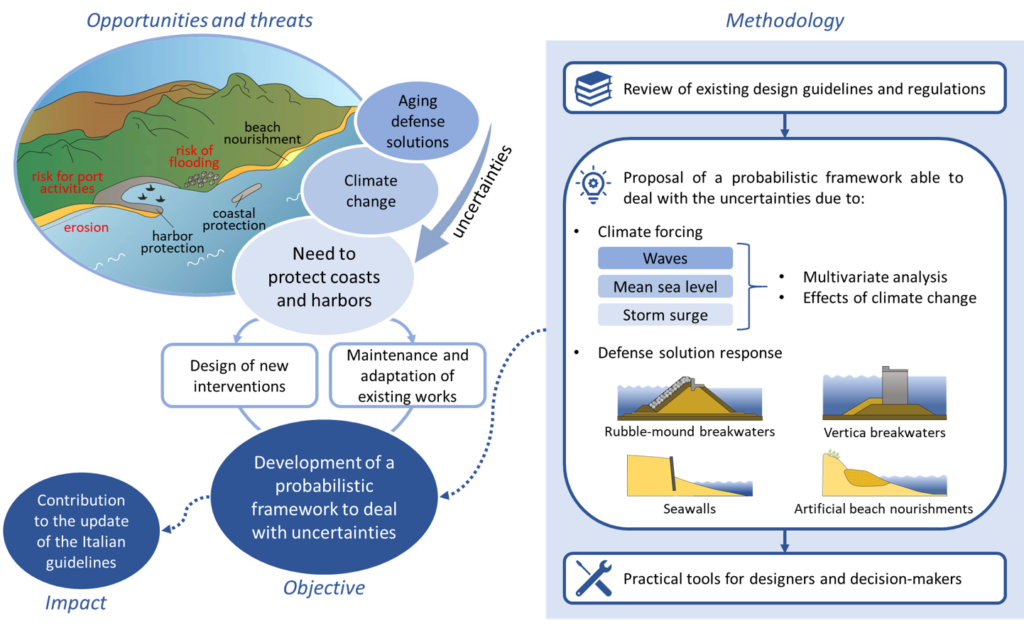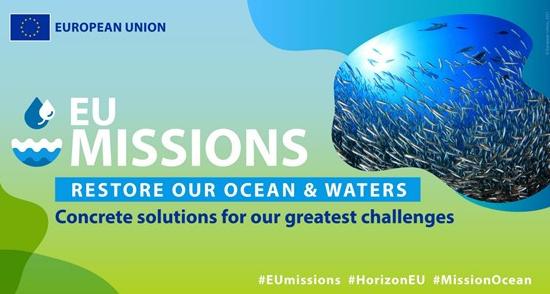PROJECT DESCRIPTION
Coastal zones host many natural ecosystems and economic and social activities, which require protection from the action of the sea. The design of coastal and harbor defense solutions is a complex task, due to the difficulty to describe their response to wave loads as well as to include the stochastic nature of climate forcing. Nowadays, the existence of a huge number of aging defense structures and climate change-induced forcing variability highlight the need for sustainable maintenance and adaptation plans.

In this context, uncertainties related to the non-conventional nature of historical or adapted structures and to the effects of climate change on marine climate must be properly considered during the design process.
Traditional deterministic design methodologies do not take into account such uncertainties, whereas probabilistic design methods employ probability distribution functions of the involved variables to estimate the failure probability of a certain system.
In the world, only a few national design guidelines started to use probabilistic approaches, which however refer just to newly built structures, while the effects of climate change are considered only in a simplified manner. In Italy, technical recommendations for maritime dikes and coastal defense solutions date back to the ’90s and are still based on a deterministic approach. Moreover, though climate-aware engineering design is required, for example by EU guidelines for public work funding, no solid know-how is available to designers and decision-makers.

In this context, PROMETEO aims to foster a more resilient approach for the management of coastal areas, by developing a probabilistic design framework able to consider the uncertainties related to the response of new, existing or adapted coastal and harbor defense solutions and met-ocean forcing in a changing climate.

OBJECTIVES
The objective of the Project is to provide a set of methodological tools for the development of new updated national guidelines for the sustainable design and maintenance of coastal and harbor defense interventions. In particular, the project proposes a probabilistic modular framework to assess the performances of new, existing and adapted coastal and harbor defense solutions and their response to the effects of climate change, focusing on rubble-mound and vertical breakwaters, seawalls and artificial beach nourishments.

PROMETEO will address the following specific objectives:
- O1: Review and comparative analysis of existing international regulations and guidelines for the design of coastal and harbor defense solutions, in order to identify gaps in the current state of art of the probabilistic design approach
- O2: Definition of a practical methodology for calculating the failure probability of coastal and harbor defense solutions focusing on:
- O2.1: implementation of a calculation procedure based on Monte Carlo simulation
- O2.2: proposal of synthetic performance and economic indexes, maps and classifications for the comparison between the actual conditions and options for adaptation to climate change, and for the definition of sustainable maintenance plans;
- O2.3: validation of the proposed methodology through application to emblematic case studies.
- O3: Definition of a set of tools for probabilistic calculations, with a focus on:
- O3.1: probabilistic characterization of hydrodynamic loads acting on harbor and coastal defense solutions based on multivariate analysis, also including the effects of climate change on water levels and magnitude and occurrence frequency of extreme marine events;
- O3.2: characterization of the current state of existing harbor and coastal defense solutions for the selection of the most suitable and sustainable adaptation options;
- O3.3: construction of a fault tree for each considered case (i.e. rubble-mound breakwaters, vertical breakwaters, seawalls and artificial beach nourishments), and definition of empirical laws describing possible failure mechanisms, using both existing and new experimental and numerical datasets
- O4: Knowledge sharing and capacity building of relevant stakeholders to raise design quality levels, focusing on:
- O4.1: development of a web-platform offering new tools for relevant actors (e.g. designers, decision-makers);
- O4.2: dissemination of the project results within professional and high-education organizations, private engineering and construction companies
LINK TO INTERNATIONAL AND NATIONAL POLICIES AND MISSIONS
The project will produce new knowledge useful for sustainably managing marine areas to achieve the objectives of the Water Framework Directive (Directive 2000/60/EC) and with the priorities of the EU Mission “Healthy oceans, seas, coastal and inland waters” (Mission Starfish 2030), which aims to know and protect our oceans and coastal areas by 2030. In particular, PROMETEO will contribute to the Mission 2-Component 4 of PNRR, with particular emphasis on measures M2C4I1.01 ( Strengthen the forecasting capacity of the effects of climate change) and M2C4I2.01 ( Measures for flood and hydrogeological risk reduction).






